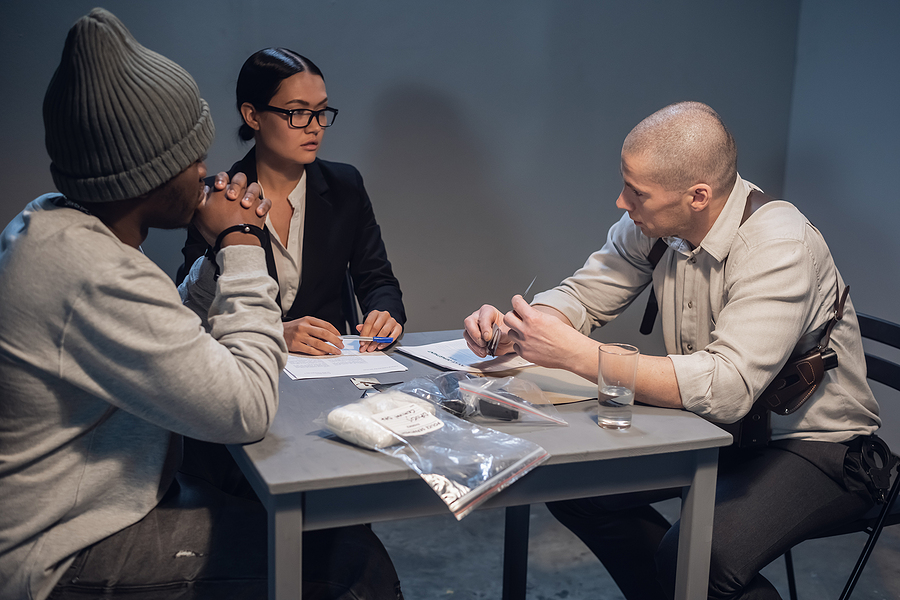Have you thought about becoming a criminal lawyer? Following a career in criminal law can be highly rewarding both in terms of the money that you earn and the experiences you have.
The work you do could mean the difference between someone retaining their freedom or losing it and becoming imprisoned, or facing a hefty fine, or some other kind of punishment.
Why are criminal lawyers important?

Before you choose to start the path of becoming a criminal lawyer, you should have an understanding of why there are important. It’s not just another job – you’re an integral part of the justice system which would not be a justice system at all without you and people like you.
Without criminal lawyers having the power to help those entitled to a robust defence, police prosecutors would be impossible to defy. Criminal lawyers act as a crucial bulwark against the state having too much power and works to thwart over-zealous policing.
Anyone experienced with the justice system will tell you that the police are far from perfect agents of the law and are just as fallible as anyone else. The existence of criminal lawyers works to restrain the behaviour of police, ensuring that they only arrest and prosecute those they can actually prove are guilty of a crime.
So, if you choose to become a criminal lawyer, then you can go into it knowing that you are becoming a part of something bigger than yourself. This is why this career path can be so rewarding.
Why do you want to be a criminal lawyer?

This is a fundamental question to ask yourself, as becoming a criminal lawyer requires a great deal of commitment with no room for doubt or laziness. You have to make sure that you have a realistic expectation of what the work will be like and that you have the willpower and intelligence to carry it out.
While it’s okay for TV and film portrayals of criminal lawyers to inspire you, you need to realise that these are romanticisations and not reflective of reality. While there is obviously some truth behind what you see on screen, it is far more dramatised, and events are skipped over for the sake of maintaining audience interest.
For example, in a real courtroom, you would never shout or act belligerently in the way that fictional lawyers often do. This adds some excitement to the story but is not appropriate behaviour in a real courtroom.
In truth, the time you spend in court as a criminal lawyer pales in comparison to the inglorious behind-the-scenes work you will do. Research is undoubtedly the bulk of your work, and senior lawyers who are handling lots of cases will outsource much of this grunt work to junior associates or legal aides.
Many cases in criminal law do not result in a court battle, since often the evidence is so strong that the only option to advise clients is to take a plea deal. A plea deal is when the punishment is reduced in return for pleading guilty and expediting the process, so nobody has to waste time with an open and shut case.
Most cases will rarely be as exciting as what you see in fiction, and you will need to be practising for many years before you are trusted with high-stakes matters such as those involving murder or manslaughter etc.
While this may seem less exciting than you may have imagined, you should not be disillusioned. Every criminal lawyer will have highlights in their career and standout cases where they defied expectations and truly excelled at their craft – just don’t expect this to be a weekly occurrence for you.
Becoming a criminal lawyer

Now that you understand why criminal lawyers are essential and what the reality of a career in this field looks like, we can discuss what it takes for you to become one.
First of all, to be a criminal lawyer, there are some personality traits you should make sure that you have. You need to be someone who can thrive when put under pressure and work to deadlines. You need to be able to think quickly, and you must relish a challenge.
As mentioned, there’s a large amount of research and evidence gathering involved in criminal law, so having the ability to collect and analyse information quickly is a bonus. Your attention to detail needs to be impeccable since many cases can be decided by small factors that nobody else will have noticed.
Some of the best criminal lawyers have a reputation for being able to spot technicalities and unique arguments that the prosecution never imagined. Some of the most satisfying experiences as a criminal lawyer come from having a eureka moment where you identify an argument that absolutely stupefies the prosecution and leaves them speechless.
You also need to be someone who can remain professional at all times and not allow your emotions to compromise your stoicism. Due to the nature of criminal law, you will represent a diverse array of clients, and you need to go into each case with an open mind that is not influenced by prejudice based on Criminal Defence Lawyers Australia’s website.
Salary
The salary you earn as a criminal lawyer will increase as you gain more seniority and experience in the field. The specific amount will vary depending on what firm you work at as well as how competitive the area you are working in is.
According to payscale.com, the average salary for a criminal lawyer in Sydney is around $80,000, with the lowest being around $45,000 and the highest being around $124,000. As you can see, there’s quite a bit of variation between the amount you can earn depending on your seniority even within the same city.
Working with clients
A key aspect of working as a criminal lawyer is how well you are able to engage with your clients and give them the reassurance that they crave. Most people facing criminal prosecution are going to be highly stressed and desperate for a professional like you to provide them with peace of mind that they are in safe hands.
While you can never and should never promise to guarantee their acquittal, you should seek to reassure them that you are going to do everything in your power to help secure an optimal result for them. You also need to understand that anything they tell you (even privately admitting their guilt) is part of your sworn confidentiality with them and therefore you can never tell anyone else what they tell you as their counsellor.
Client confidentiality is one of the cornerstones of criminal defence and compromising that will put your career to a quick end. To be an effective criminal lawyer, you need to be prepared to represent clients who you may personally suspect are guilty. Your personal opinion is not relevant; you are there to do a job and ensure that your client gets the best possible defence.
Conclusion
Ultimately, becoming and working as a criminal lawyer are undertakings that require you to show a great deal of commitment and mental fortitude. While it won’t be easy, the career path is something that you can be proud of in retirement.

